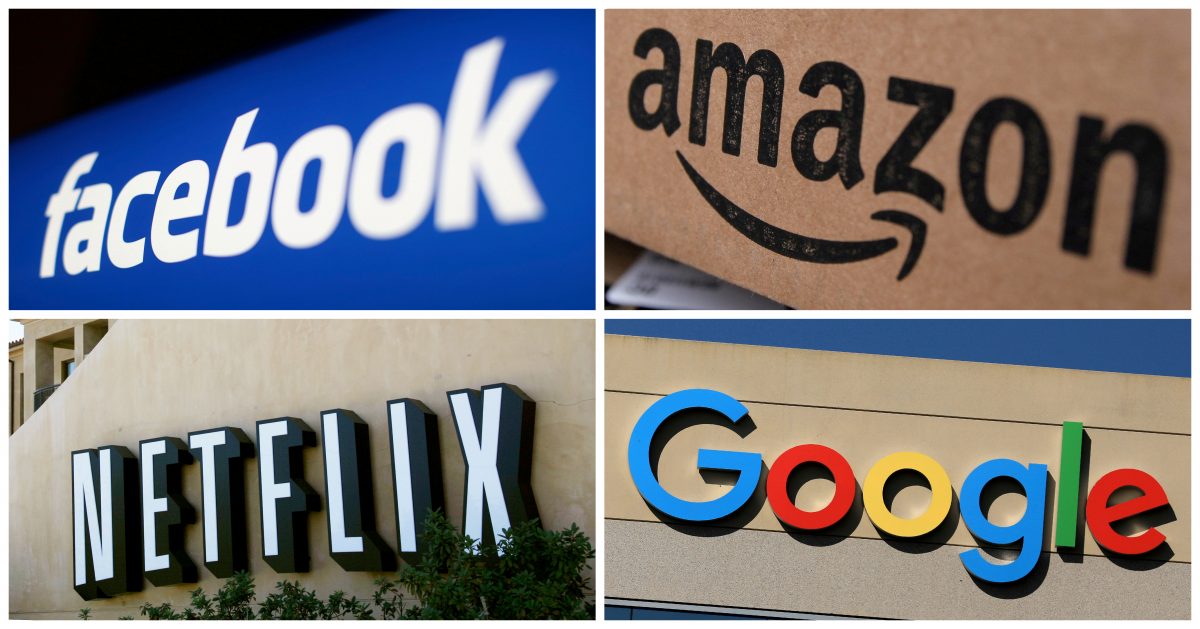


A new report puts the spotlight on businesses at the risk of going “woke” by pushing ideologies rather than focusing on profits and revenues, giving Americans the ability to take preemptive action against such companies.
The “Corporate Bias Ranking” report by the nonprofit 1792 Exchange assessed policies, practices, and other relevant criteria of more than 1,000 companies to determine the likelihood that a firm will cancel a client contract, boycott, or deny services to customers based on a difference in ideological beliefs.
The 1792 Exchange found that 12 percent of companies in its analysis were at “high risk” of going “woke,” including big names like Alphabet (Google), Best Buy, Amazon, Ford, Alaska Airlines, GM, Visa, and Adobe. Fifty percent of firms were assessed as having a “lower risk” of going “woke,” with 30 percent of businesses ranked at “medium risk.”
Paul Fitzpatrick, president of 1792 Exchange, pointed out that customers have an “incredible power.” In an interview with Fox, he advised people to ensure that “woke” companies are held accountable for their actions.
“Find the companies that they patronize, print off the report, walk into the office, the local branch, and if it’s a high-risk company, asked politely to calmly speak with the manager and say, ‘Why are you doing this? Are you going to cancel me?’ And if you’re a business or a nonprofit, ask to have the terms of your agreement changed,” he said.
“If it’s a low-risk company, go into that office, thank them, encourage your friends to shop there, and we believe that market forces will work … If we change behavior, our behavior, the companies will change their behavior.”
1792 Exchange’s report scores companies across six criteria, which include checking whether firms have previously denied services to customers or vendors based on their religious or political beliefs; whether employment policies fail to protect against discrimination based on political or religious ideologies; whether they use corporate reputation to support causes hostile to freedom of speech; and so on.
The organization points out that ideological cancellations are occurring at an “alarming rate.” As an example, it cites the chief executive of software firm Tripwire who wrote in a tweet that he supported Texas’s abortion restrictions as he was a “pro-life gamer.”
Subsequently, the company received threats from vendors, suppliers, and other partners who warned that they would cancel their contracts if the CEO remained employed. Tripwire soon denounced its own CEO, forcing him out.
“While powerful public and private companies continue their cancellation campaigns against those who dissent from secular progressive ideology, we remain committed to protecting the freedoms we cherish and need,” said the organization.
“We must fix and protect our economic system, which has lifted millions out of poverty and created unprecedented prosperity, and restore viewpoint neutrality.”
Fitzpatrick points to environmental, social, and governance (ESG) policies as one of the tools that are used to transition a firm to “woke” corporate culture.
Several Republican states are enacting laws to protect their state from the infiltration of “woke” ESG ideologies in businesses. For instance, in 2021, the Texas legislature passed a law that prohibited public contracts with public companies deemed to discriminate against the firearms industry.
Recently, Citigroup was removed as a potential underwriter of $3.4 billion worth of municipal bonds in the state due to the bank’s opposition to firearms businesses.
American citizens also do not want businesses to mix politics in their operations. A recent poll by the Trafalgar Group and Convention of States Action (COSA) found that almost 80 percent of likely voters have a higher chance of buying from politically neutral companies if they have a choice.
More than 75 percent of both Democrat and Republican voters shared this sentiment. “This is a blowback that’s coming,” Mark Meckler, COSA president, told The Epoch Times.
“It’s coming big time against all this ‘woke’ politics in business. It’s not even that folks want their companies to reflect their politics; they want their companies, the people they buy from, to just ignore politics.”
